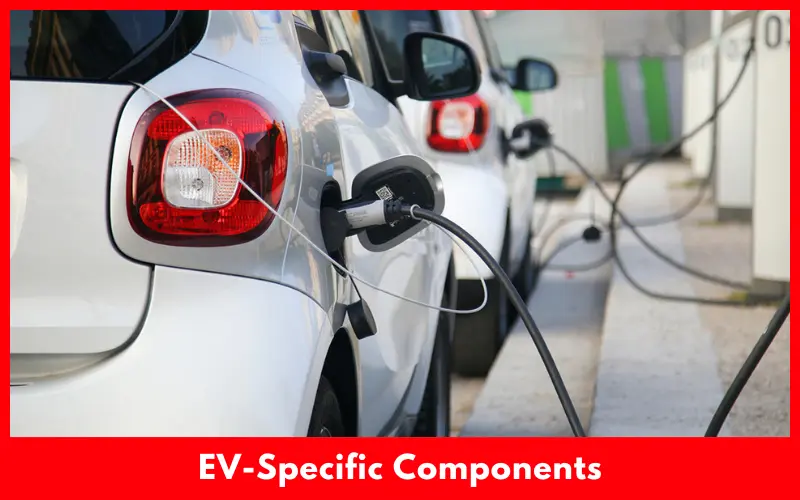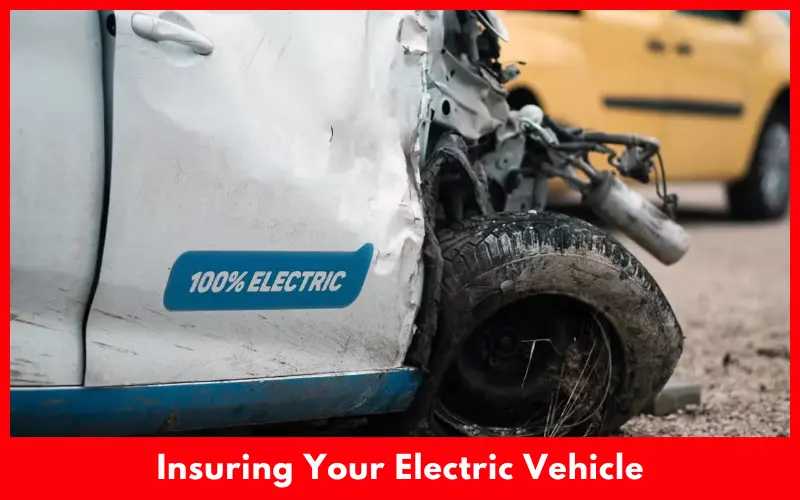Car insurance is mandatory for car owners in most parts of the world, like Australia, the United Kingdom, and 49 out of 50 U.S. states (New Hampshire excluded).
This regulation, naturally, also applies to electric vehicles. EV insurance works almost indistinguishable from regular car insurance in that it serves as a protective measure in the event of damages.
That said, there are a few differences that you should expect before insuring your electric vehicle. It runs on different mechanisms, after all, being battery-powered instead of fueled on gas.
Furthermore, there are also some unique conditions offered by most EV insurers that you should be aware of. Knowing these things can prevent you from making any costly mistakes when insuring your car. It can also help you opt into valuable coverage options, saving you thousands of dollars.
If you want to stay informed, this article will shed light on things to watch out for when insuring your electric vehicle. Let’s jump right in.
Article Summary
Compulsory Insurance and Additional Insurance
In most countries, you’re required to have mandatory vehicle insurance in case of accidents. For instance, Australians in all territories have to own compulsory third party insurance (CTP insurance) before driving their vehicle on public roads.
This type of insurance covers at-fault driver’s liability for injuries dealt to people injured after a vehicular accident, including medical expenses, rehab costs, and lost income. However, this insurance doesn’t cover car damages and personal injury costs.
This rule also applies to electric cars. If you’re buying from the store, the compulsory insurance may already be packaged into the total purchase price. However, some states may have them as separate add-ons, so be sure to review your region’s regulations regarding CTP insurance.
As useful as compulsory insurance is, it’s not something that can cover every possible damage source made to your vehicle. That is where optional comprehensive insurance comes in.
Comprehensive car insurance covers loss and damage to a vehicle for a wide range of instances, including:
- Accidental collision
- Fires and floods
- Storms and water damage
- Theft or attempted theft
- Explosions
- Vandalism
- Lightning or hail damage
- Explosions
Of course, policies can also be adjusted to take EV-specific damage into account. Many insurers have different policies for electric vehicles, so if you want to get insurance for your Tesla Model 3, be sure to contact various insurers and review their terms, conditions, and limits.
Reputable Company for Insuring Your Electric Vehicle
Besides the insurance policies an insurer can provide, it’s important to look at the insurer’s profiles themselves.
Picking the right insurer can help prevent further headaches and frustration during the claiming process. The right one will also be transparent and accommodating to your needs, which is vital when you need to claim a payout from them.
The question then becomes: how do you pick a reputable insurer for your EV? These are some actions to perform to ensure that you’re getting a good car insurer:
Shop around: EV car insurance policies can differ from insurer to insurer. Try to round up about three to five quotes from different providers. Then, compare them based on their price and individual value proposition.
Read reviews: It’s essential to get a good idea of your insurer’s reputation, and the best way to do so is by looking through third-party review websites for a glimpse of their services. Customers can provide detailed accounts of the pros, cons, and details of the claiming process—which can drive you to purchase the right insurance policy.
Flexibility: An insurer who offers the best leniency according to your financial needs is one that you’d benefit greatly from partnering up with. This helps you manage your costs more effectively.
Good customer service: You want to maximize the likelihood of having pleasant interactions with your chosen insurer. As such, be sure to select a provider that’s known to provide top-of-the-line customer service interactions.
Financial strength of the company: You want peace of mind when choosing an EV insurance provider, and the best indicator that the insurer you’re partnering up with is reliable is by looking at the company’s financial strength. Review their fundamentals and profitability and consider them if they’ve historically shown good finances.
By looking at these factors, you can invest in the right insurer and protect your electric car more appropriately.
EV-Specific Components
Repairing an electric vehicle is different from repairing and maintaining an ICE vehicle—and both are inevitabilities. For one, EVs have fewer moving parts to replace. The lack of a spark plug, combustible engine, and motor oil, among other things, means fewer things can get damaged or deteriorate over time.

That said, the prevalence of ICE cars on roads means that repair facilities are equipped with the knowledge base and parts to deal with the most common issues. This lack of specialized knowledge means that expertise is more commonly spread out, which means less of a payout for insurance providers if they do need to pay out.
Conversely, repairing an EV requires technical know-how on how specific parts operate. For instance, certain EVs have their own battery, motor, or charging equipment. If they do break apart or become inefficient, even if it’s just once in a decade, it can be costly to replace even as a one-time fee.
As such, it’s important to have ample coverage for your specific EV’s car parts in case they do break down. It’s also essential to protect your home charging stations, as they can be costly to repair out of pocket. Also, know if you can get full reimbursement if the damage is irreparable.
Repair Network
Many insurers partner up with car repair networks to ensure that your car will undergo high-quality repairs. These repair centres are located at geographically convenient locations, helping customers from all over the country access a repair shop whenever it’s needed.
Some insurers may partner with repair centres located near your home or office, allowing you to repair vehicles under their payout scheme, no questions asked. These insurers also tend to be very selective of who they partner with, which can be great for your peace of mind knowing that your car is properly repaired.
If you want the guarantee of a convenient repair process for your insured vehicle, be sure to review your insurer’s repair network to see if they’re authorized partners with nearby repair facilities in your area.
Roadside Assistance
With EVs relying on charging port architecture, it can be quite unreliable the farther away from central spots you go.
Even the best-planned-out road trip can go sideways. So if you want to minimize these worst-case scenarios, find an insurer that provides roadside assistance as part of their insurance plan. Some insurers provide this benefit and more to EV owners as part of their overall insurance plan.
For instance, some insurance providers provide free or discounted towing services to a charging station. They may also bring a battery charging set to your destination if you’re stranded, help you charge your vehicle and get back to where you need to be.
Review your insurer’s policies to see if this is something they offer.
Discount and Financing for EV Owners
Electric car insurance pricing can go two ways: it can be affordable with minimal coverage, or it can be higher than even ICE vehicles.
The determining factor would be the car’s make and model; the cost of insurance for a Toyota Prius EV would be cheaper than ICE insurance, but the cost of insurance for a luxury car like the Tesla Model 3 would be quite a bit higher than the national car insurance average of AU $1,472.
With the steep price for higher EV makes, it’s in a lot of car owners’ minds to find ways to score better deals for their insurance and other relevant costs. Fortunately, this is possible.
Some insurers provide eco-friendly discounts due to the utilization of an electric vehicle. Some insurers bundle EV insurance with other policies, like home insurance. Other insurers provide cheaper rates for cars with low mileage and little history of repairs.
End Note
Beyond that, there are also government grants that can offset EV insurance costs, helping alleviate the pressure of high spending.
Be sure to scrutinize your insurance policy options closely to see if it fits your individual set of circumstances. This way, you can maximize its value while potentially scoring on good deals.
Good luck shopping for insurance policies!

